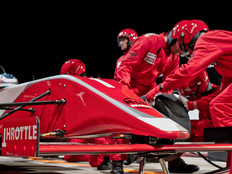Experts Address Common Concerns Over Esports Programs
With esports growing exponentially, universities are working hard to capitalize on the trend while also developing the academic benefits.
“Global viewership and participation in esports are second only to soccer,” Anthony Salcito, vice president of education at Microsoft, told EdTech at EDUCAUSE 2018 in Denver. “We’re seeing both popularity of individuals as well as teams as universities are starting to think about building esports programs.”
Higher education experts are weighing in on common questions universities are asking about esports as administrators strategize their approach.
INFOGRAPHIC: Check out an infographic that highlights gaming equipment.
Universities Look for Academic Opportunities in Esports
Esports enthusiasts argue that competitive video games, like other collegiate sports, build soft skills that will be valuable to students after graduation, including teamwork, collaboration and discipline.
“One of the things we love about esports is the competition, the competitive grit, that is applied,” said Salcito. “We want to figure out how we can bring those skills into the world of work.”
The global phenomenon of competitive gaming is also creating a need for new skills, and universities are responding by adding new programs to their curricula.
The Ohio State University and Emerson College, for example, have established degree programs in esports business management and in game design and production.
Institutions Want to Understand the Network Demands of Esports
While IT staff may be concerned about the added demands that esports places on university networks, experts say that most institutions likely have the bandwidth to handle it.
The trick is to balance network allocation to keep gamers competitive, without compromising security, says Donald Tharp, CIO at Ashland University.
“The latency is key, and if you run them through your normal firewall, that will slow down their gaming,” Tharp says.
As colleges construct their esports programs, Tharp recommends that they reach out to peers to ask questions and learn best practices.








